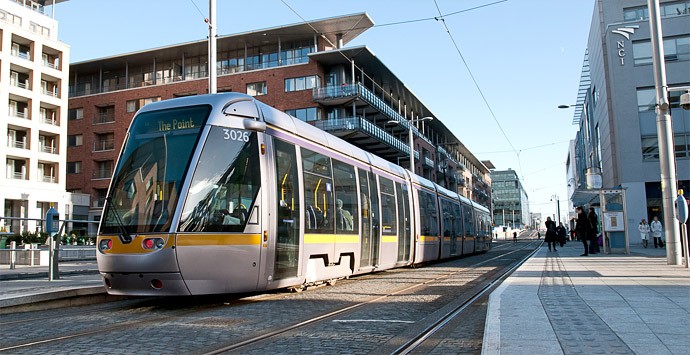I’m very fond of my own little parable about the Dublin trams. It’s highly symbolic about social change – and social renewal.
In 1949, the last of the Dublin trams were abolished, as all progressive-minded folk affirmed that “the future belongs to the motor car”. A few, lonely protesters tried to save the Dublin trams, but to no avail. They were written off as anachronisms.
Walk through the streets of Dublin today and what do you see? The Dublin tramway system being painstakingly reconstituted – at huge expense and enormous inconvenience.
So the trams weren’t an “anachronism” after all! Trams are now considered a brilliantly efficient form of public transport.
Consequently, whenever someone condemns any process or practice as “an anachronism”, the tram association bell rings in my head.
Support
The Fine Gael TD Josepha Madigan has condemned Article 41.2.1 of the Constitution which refers to the woman in the home. (“…the State recognises that by her life within the home, the woman gives to the State a support without which the common good cannot be achieved.”) Ms Madigan hopes to have this “archaic” “anachronism” deleted by referendum. She is backed by Orla O’Connor of the National Women’s Council and the UN Committee on the Elimination of Discrimination Against Women. Tram bell again! The clause’s phrasing is a little old-fashioned, but does it discriminate against women – or does it honour those women (and mothers) who freely choose to be home-makers?
And now comes another twist in the saga. Prof. Geoffrey Shannon, a leading lawyer, has said that removing this clause might very well disadvantage women in the case of marriage breakdown. Maintenance could be reduced without this “anachronistic” 41.2.1. A dependent spouse “fares better in Ireland than in virtually any other jurisdiction in the world” – because of the state’s recognition that the home-maker has made a real contribution to social well-being, and therefore deserves support and protection.
Josepha Madigan, Orla O’Connor and the panjandrums at the UN Committee may ponder on the possibility that in several decades time, they may be considered “archaic” and “anachronistic”, while the idea of extending fair support to homemakers is regarded as enlightened, decent and honourable.
Do contemplate the parable of the Dublin trams, sisters!
***
A time well captured
My summer reading includes Matt Cooper’s entertaining and informative biography of Tony O’Reilly, The Maximalist, now in paperback. It is a picture of a time, and a place – Ireland from the 1940s to the 2000s – as well as of a man. O’Reilly taught Irish business people how to market a ‘brand’, which included a dynamic Irish identity.
The author gives full credit to the encouragement Tony received from his Jesuit teachers at Belvedere, although they knew, privately, that his parents were not then married, something usually stigmatised in the 1940s – and not just in Ireland.
Tony himself once said to me “my mother fluttered her eyelashes at the admissions interview; and, as well, I think the Jesuits saw a potential in me for future achievement.” Indeed.
***
Handshake is a touching gesture
I notice that in Dublin churches, the ‘handshake of peace’ is usually practiced at Sunday Mass. But outside of Dublin, it is – in my experience – less usual. When I was in Co. Kerry last month, there was no ‘handshake of peace’.
I surmise that this is the explanation: in most parts of Ireland, outside of the major cities, people in the community either know each other already, or have some familiarity with those they see regularly in the church. In these circumstances, they might feel a bit artificial about exchanging the handshake. They already share a sense of community with those in the pew – they don’t need to emphasise it with a formal handshake.
But in Dublin, those attending Mass are more likely to be strangers to one another, and therefore the ‘handshake of peace’ seems like a kindly way of acknowledging a stranger, and extending a sense of community. And in this season of visitors and tourists, it may also act as a céad míle fáilte to those from overseas.
There were a couple of Americans in the pew in front of me last Sunday and you could see that they really appreciated the gesture.
It would be nice to see it practiced everywhere, although I realise that it doesn’t come naturally to everyone. My late husband thought it rather false – as if pretending to be chummy with all and sundry. I argued the case that it represented a fellowship of Christians, but he found it embarrassing.
But look, get over yourself, say I. Share the handshake of peace, which can also be a welcome to another soul in the parish. You never know what inner struggles the person next to you might be going through, and the fellowship of faith can be, literally, touching, in this exchange.


 Mary Kenny
Mary Kenny
